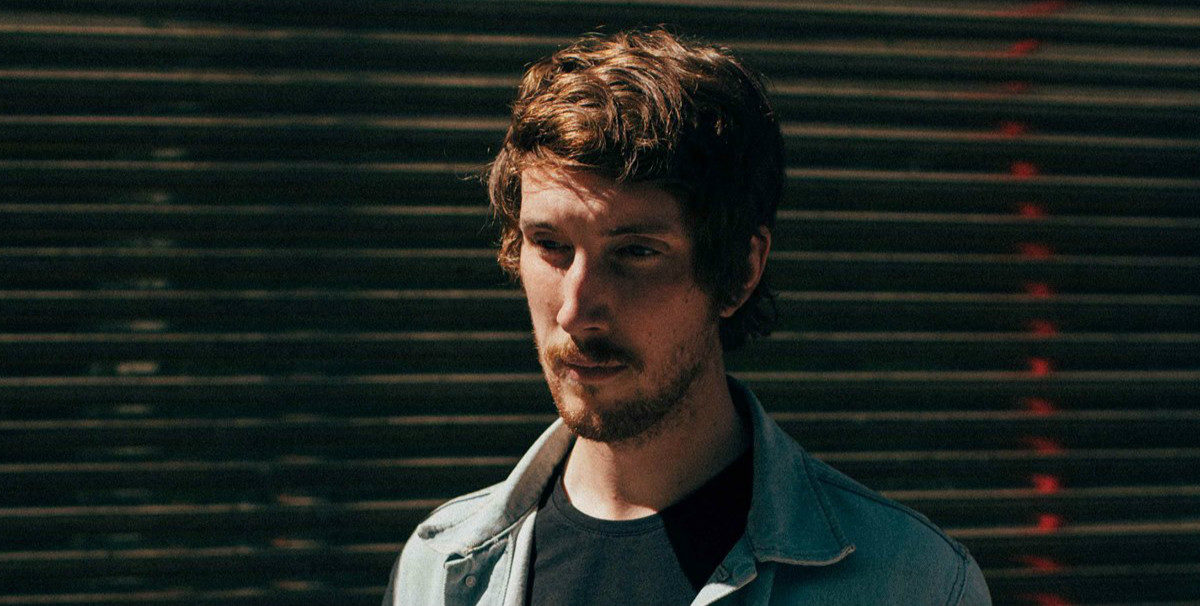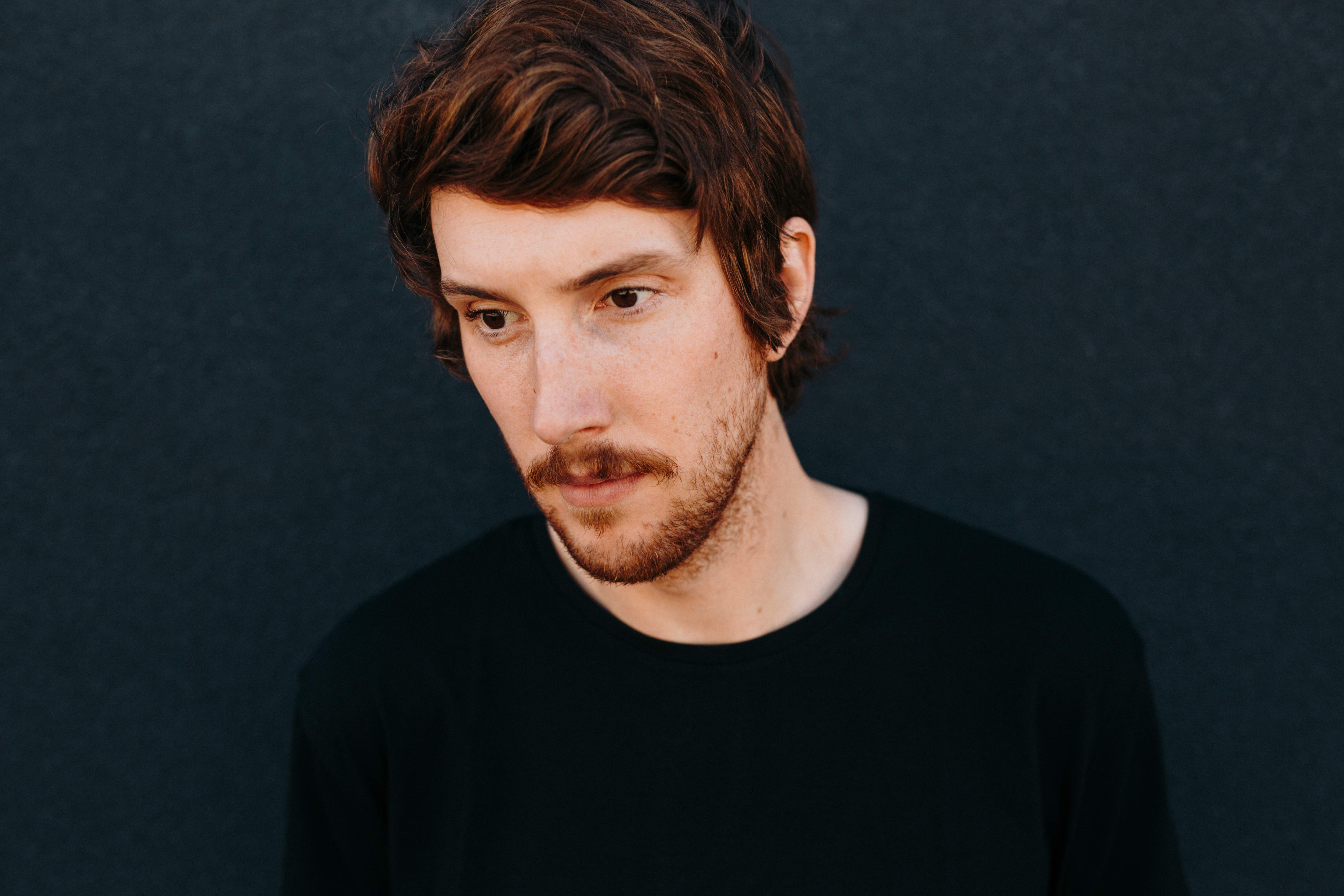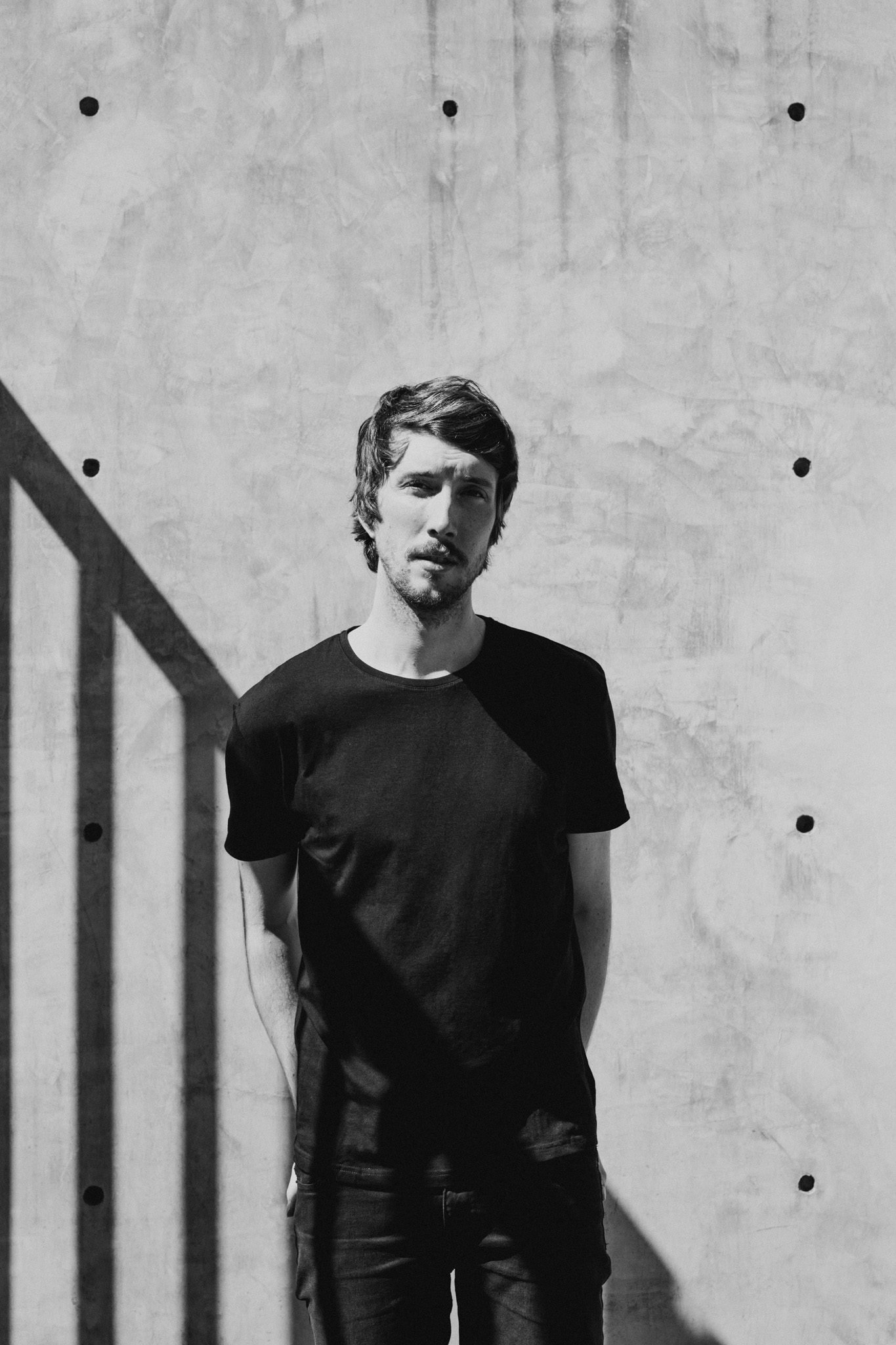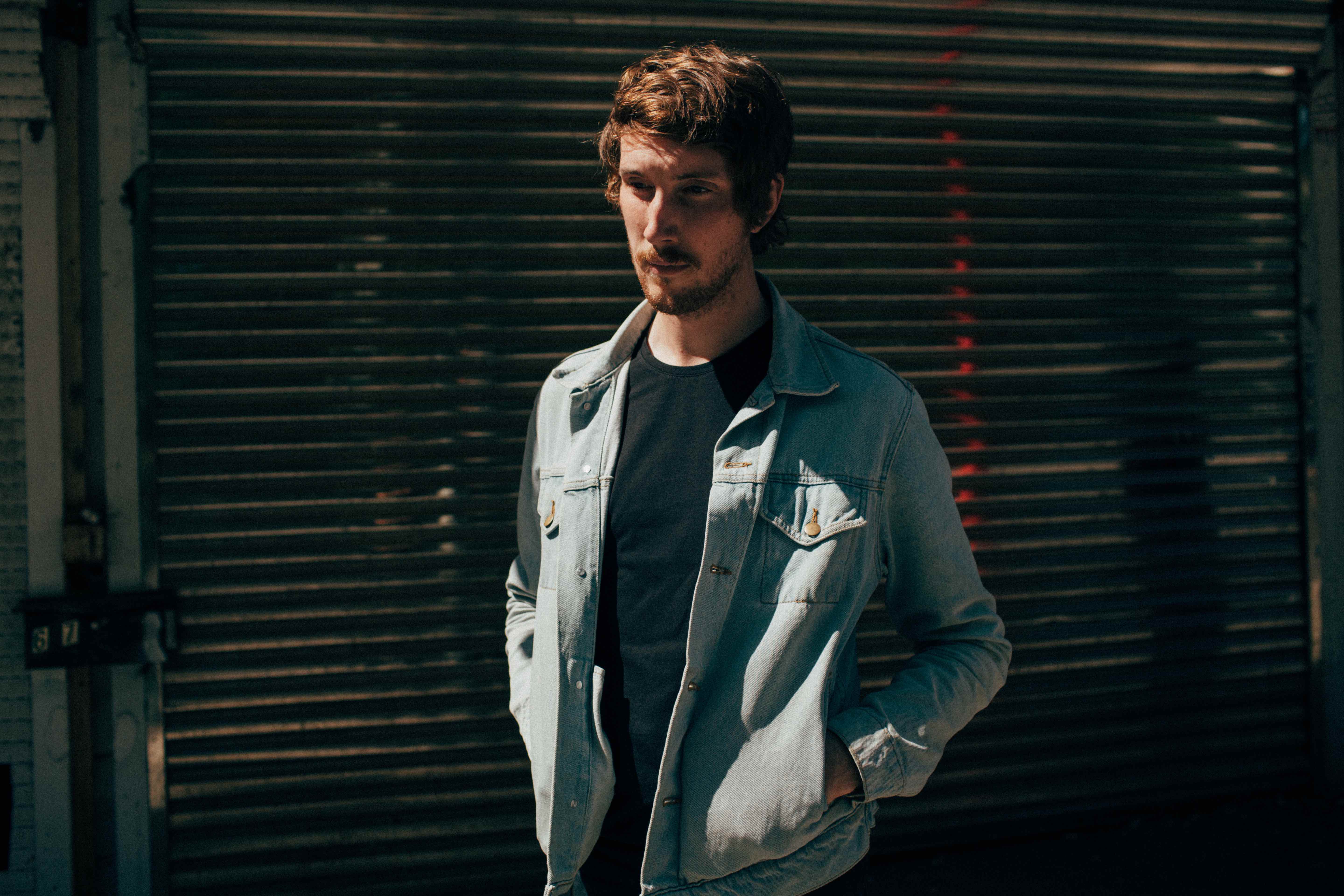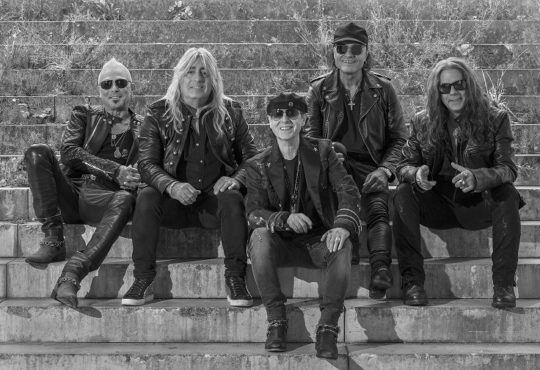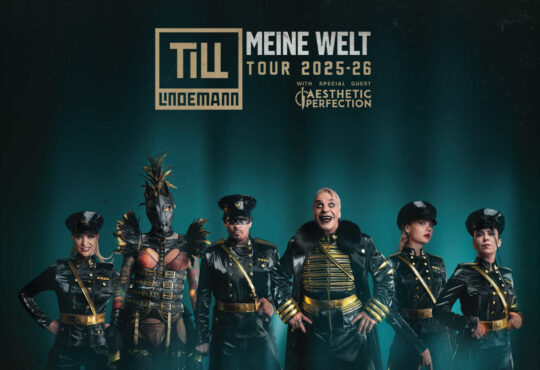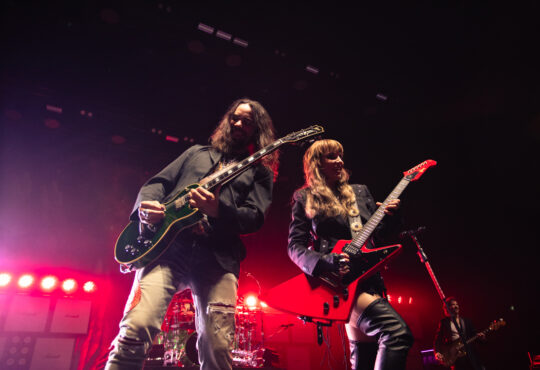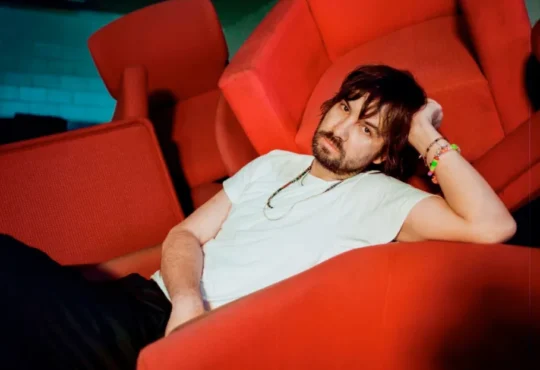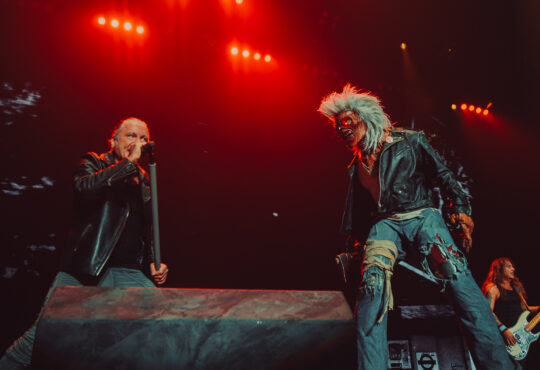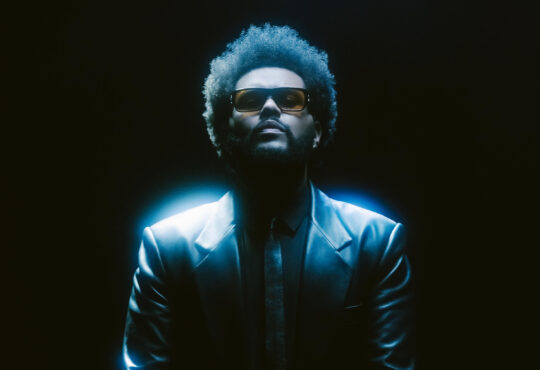Less than one week after the release of “Each Other”, Aidan Knight’s third studio album, and a few weeks before the beginning of his European tour, we had the pleasure to meet the Canadian singer in a bar in Shoreditch, London.
You released your third album “Each Other” on January 22nd, how is the audience reacting so far?
Aidan Knight: So far, really, really well. I don’t wanna say “Everyone thinks it’s amazing”; but being from Canada, which is such a big place but with not so many people there, we don’t have as much success there as we have here. We are still very new in France, we haven’t played many shows. We’ve only played in Paris, Rennes and in the south. All of the reviews so far from France, the UK, and Germany and all over Europe are very positive. And that’s crazy, it’s so cool, I love it.
It must be very special this time since you just signed a contract with Full Time Hobby. Your album will be distributed in Europe contrary to the last ones.
A: In a lot of ways, this is almost like the first album because no one has really heard about us yet so I think this is a good introduction.
So you just moved to Berlin, do you think it will influence your writing in some ways?
A: I hope so. I hope that some of Berlin will rub off on me. And it is not to sucking up to Paris but I love being in Paris; I mean, it’s hard to put it into words, but it’s such a capital of culture and food and free speech and that’s everything to me. (laughs) I think that Berlin and Paris especially are two of the most culturally exciting places right now. Coming up, I’m doing these shows with Half Moon Run and I will play in Lyon and many places, I’m really excited to go to the South. It’s crazy, when I was sixteen years old, writing songs for the very first time, I never thought that I would ever get the chance to go and play a show in like a big venue in Paris. It’s like a dream come true.
For our readers who don’t know you, what can you tell us about yourself? Why do you play music?
A: This is also very interesting to me how different countries and cultures educate children in music. Before I answer the question I’ll just ask you: in France, when you were in primary school, did you have music education or did you only have the opportunity to play outside?
Yeah, outside actually.
A: Outside, so it’s very similar in Germany as well. But in Canada, when you’re about nine or ten years old, you can take music in school so I played violin, trumpet… and then later when I was sixteen I started to play guitar. And I realised that I could play and sing at the same time. And I found out how to record myself so that I can play and sing and then record again on top of that and put other instruments on. And that was really mind-blowing to me, that orchestra of sound. Then I realized what I wanted to do was to learn more about the other instruments and for the next several years, between sixteen and twenty-one, twenty-two I mostly just played instruments in other bands. I played bass, drums. I played in a band (ed. Maurice) that went to Los Angeles and we recorded with a big major label. And it blew my mind because so much money was spent on making this recording! I come from a family where we did not have a lot of money. I grew up in Chinatown. When I was old enough to go to shows, I went to a lot of punk shows where kids just wanted to play music. The album was never released. Over 100 000€ were spent on this one recording. I’ve never had that kind of money and I don’t know if I ever will. So I said to myself “I don’t think that I will be able to do this”. I stepped away from doing that and that’s when I started recording my first album and I put together all the money that I had and I recorded it over three years. I hand-made all of the record sleeves. I sold all of those to make the next album. I took that album and then I brought it to a record label in Canada and I told them I needed help to print the album and help me to manage my music. I did not trust record labels. But they did such a great job that this album “Each Other” is sort of the first album, even though I did all of these things in the past. I learnt so much from when I started playing music when I was very young to this album now. It’s like a lesson to me. When I think to all of the things that happened in my life, I can’t believe I made this album.
I read in “Exclaim!” that you almost did not release this album, you almost gave up. What happened?
A: Do you ever have just a really bad day? Like a day where there is a dark cloud over you? I had two months of that. Two days before recording I was really confused about what sort of recording we were doing and then I had a talk with the producer and we realised everything is cool. And then we worked through and recorded the whole thing. And right at the end ,the bass player, Colin, was having all of these problems with his hears and Dave, our drummer, decided he wanted to go back to school and did not want to play with us anymore. I was just about to record the vocals for the album during this time and I thought “My friends, with whom I played for so long, I’ll never be able to play with them again, what’s the point of releasing this thing?”. We all made this thing together so I needed to remember why I loved making music. It’s kind of cheesy. But I had this conversation with some of the people that helped me with the other album. And they said to me “You’ve done something that’s good. I wish we could make you believe it but only you will be able to believe that you made something that is worth releasing”. So I decided that because we put so much work into it, even though I had two friends who will sort of not going to be there for the release, that it was something really great. And I love this because I can sort of remember them with it. It’s like a picture that you can look back and even if, it’s kind of crazy, but if you have like a friend who has passed away you can remember this great moment that you had together. And I really hope that I will get the chance to play with Colin and Dave again. I think that I will, at some point.
Do you do all the writing by yourself or together?
A: Together. It’s a collaboration. I tried to do everything by myself on the last album. But these songs have been written by the five of us (ed. Olivier Clements, David Barry, Colin Nealis and Julia Knight).
This album seems to be like a diary, intimate, sincere and honest. Did you also write the lyrics together though?
A: The lyrics are totally mine. But I wrote the lyrics on top of the music. So, we came together and created all the music as a band.
And what were your influences and sources of inspiration for this new album?
A: I listened to so much music that meant so much to me over my life and I have a lot more to listen to but up to this point it sort of goes into my brain and compresses and all become one thing. And when I go to write a song, I steal a little bit and then I turn it into something that’s new. And so, I usually steal a lot from movies. Even just as much as music. There’s a horror movie that came out last year called “It Follows”. It just has this look and this mood to it. I think it’s in the future but it feels like it’s in the past. But it could be almost in the present. And it just feels real, comfortable and like a world. And that’s what I want for music, I want someone to listen to my music and say “I feel comfortable in this world but there is also something that is just outside”. Like in “It Follows”, this other sense, is that horror, romance? In music, is that a happy song, a sad song? What is this person trying to tell me through the lyrics, through the music, through the instruments that are being used? I think movies and music really do a lot of the same thing.
On “What Light”, you say: “I’m not in love with the sound of my voice”. Is that true though?
A: It is true. It’s sort of drawl, cheeky. I like the lyrics, I love the idea of a song opening with the lyrics: “I’m not in love with the sound of my voice”. It’s very evocative. But then the next line of the song is like: “I’ve only been in love one time”. So I’m not in love with my voice but that’s because I only have one love. Which is quite touching and it’s a response to the first line. But it is true; I don’t love my own voice. I think myself more of a player. It’s uncomfortable for me to listen to my voice. I like the female voice more than I love the male voice. It’s hard to describe. Do you ever record yourself on your phone and listen back to it? There is something in the human mind that makes us hate our voice.
“The Arp” stands out of the album. This song seems a little bit more rock than the others. Can you tell us more about that song?
A: We had many different ideas for many different songs and a few of the other songs were changed to be less rock, or more soft or less soft. You know, there’s a lot of things you don’t get to hear on an album, there is a lot of drafts. So that was one song for which we wrote different things. How do I describe it? It’s funny because it’s such a long song but I feel like it’s very direct, right off the top there is melody right in the bass, the drums are right in, it gets to the core quite quickly. If it wasn’t seven minutes long, maybe it could be a radio single of 1976. (laughs) It’s like a vintage rock song but then the end of the song takes it to a new place. It gets very big and it’s what I’m interested in. Taking something that is kind of harassing like the horror movie. It looks into the future, feels like it could be in the past and that’s why it’s in the present.
You released a very interesting video for “All Clear”. It starts in the manner of a Wes Anderson movie. The mood is also very 1980s. Was it your idea? What was your intention?
A: The whole idea, although I wish that it was mine, is purely the directors’ Oliver and Will who are these two young directors who live in the same city as me. They said: “We have this idea, it is kind of weird”. And then they pitch me the idea that was almost exactly what you see in the video, this kind of Wes Anderson’s, 70’s but almost 80’s. Maybe it’s modern but maybe it’s not. And actually, I was sort of sceptical with the sort of computer world that it goes into. But like I was saying before, this is like a lesson, the album and also everything that is happening around the album. The lesson is “let people do what they love, what they’re passionate about and they’ll make something that is great”, not all the time, but it seems to be working out so far. You have to be able to sort of let go and not to be looking over someone’s shoulder all the time and just letting them be free to do what they are good at. It’s a good result.
About the artwork of this album, on “Versicolour” there were several rounds of colours on “Small Reveal” a man and a woman on motorcycles. And on “Each Other”, we can see a hand reaching a dog’s nose as if to tame that dog, to establish trust with this dog.
A: Your interpretation is very good. The photograph on the front cover is almost like an analogy of the music that is in it. It is very human, there is a portrait of a definite moment of time and we had planned a different cover with a girl and a dog. Actually it’s funny because I really loved the cover of “Heroes” by David Bowie and I wanted something that had the same feeling with the hand and the stare and black and white. I sort of passed that along to Vanessa, who’s the photographer. I wanted her to make this image. But the schedule didn’t work between the dog and the girl so they did not make many photos. This photograph was actually in between. The analogy is that sometimes the mistakes for the things that happen between the two points that you planned are what you’re really trying to convey. It is candid, it’s human even though it’s a dog, it’s a moment of trust between the dog and its owner. But it’s almost a moment of shock between the dog and the hand. And we wonder what happened before and what happened after. That’s the image that spoke to me the most and it was the one that was planned the least.
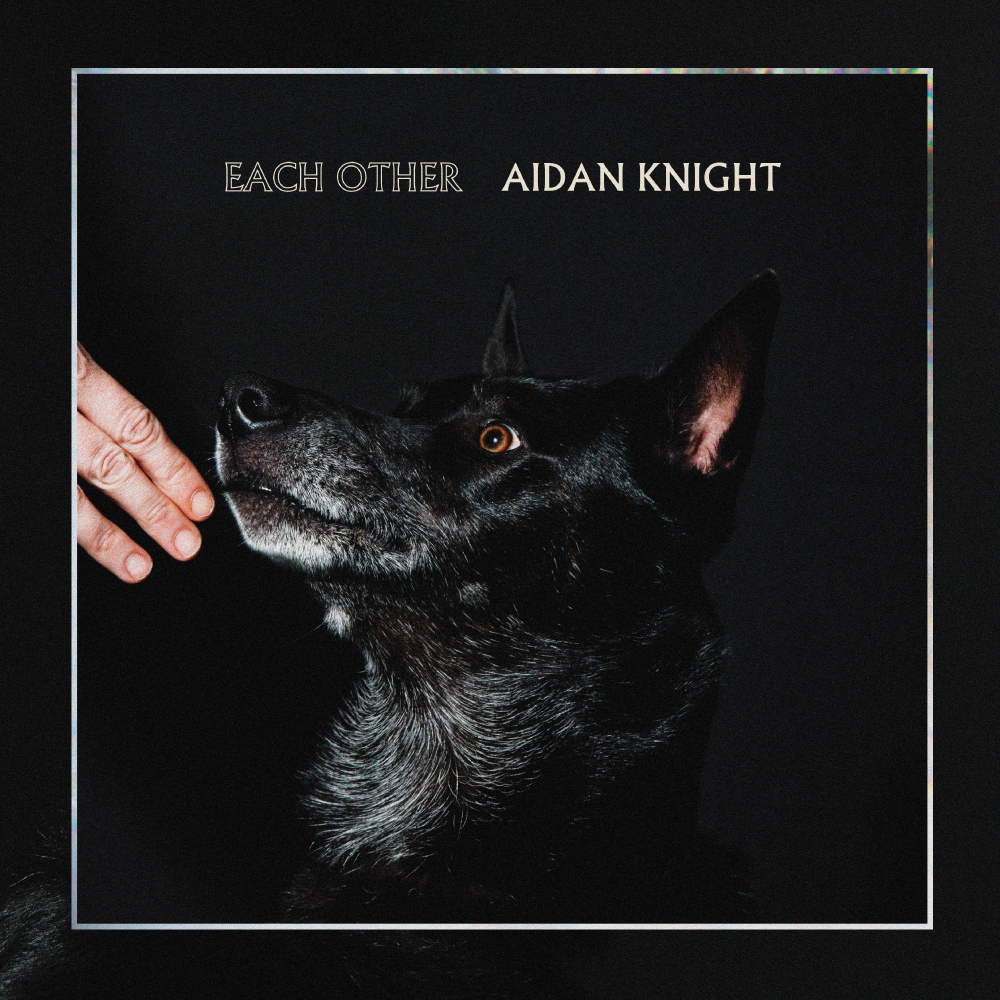
And how does it reflect you’re music?
A: It reflects my music in those moments between the planned ones. It gives a very human quality to the music as well. You play the songs over and over again and there are happy accidents, things you didn’t planned for and that become so important to the song that the song could never be the same after that. It’s also a little bit 90s, something, once again, not so far in the future, not so far in the past, something that is sort of familiar to me. The dog was also really important to me and I was very specific that I wanted a cross-bred dog that has that look of trust, a sort of companion to the owner. I like how dark it is as well. It’s kind of hard to see on the computer but I received the record and it looks so great. When you open the record, it’s filled of kaleidoscopes, colours and light and I really like it.
A last question that we ask everyone since our magazine is called RockUrLife. What rocks your life?
A: The thing that rocks my life is the quest to make really good mother sauces, which are French, all of the French sauces: Béchamel, hollandaise, tomato sauce. The thing that rocks my life is learning how to cook. And sauces, right now, are the thing that rocks my life the most. Once you learn how to make all five, you can make anything. That’s one thing that is part of being excited to tour in Europe; there is so much great food.
Website: aidanknight.com



